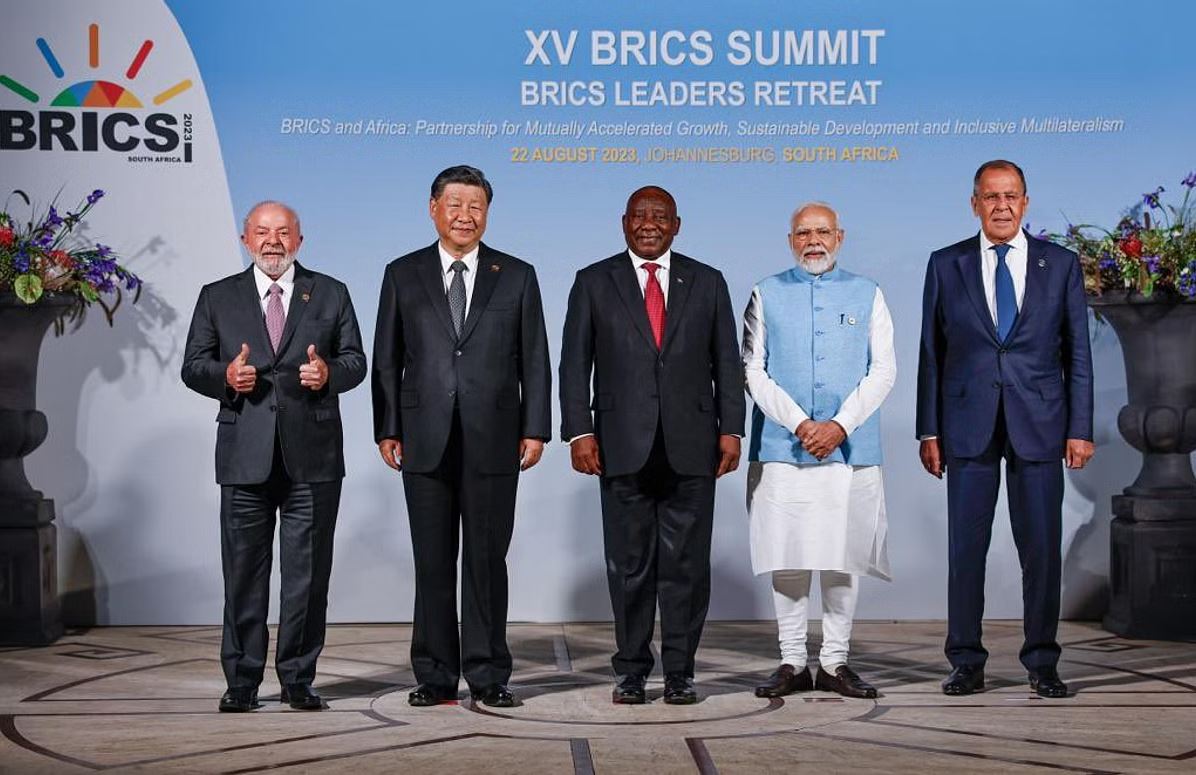In August 2023, the bustling city of Johannesburg played host to the BRICS summit, a significant gathering of leaders from Brazil, Russia, India, China, and South Africa. For those new to the term, BRICS represents a coalition of emerging economies that, combined, account for a staggering 42% of the world's population and a substantial portion of its GDP. Established as a counterweight to Western dominance, this bloc has been steadily gaining momentum in global politics.
The recent summit was abuzz with discussions that could potentially redefine the world order. Two pivotal topics dominated the discourse: the expansion of BRICS membership and the collective desire to challenge the U.S.'s global supremacy. Over 40 countries, including heavyweight contenders like Saudi Arabia, have shown interest in joining this influential bloc. The summit also saw a virtual participation from Russian President Vladimir Putin, emphasizing the group's adaptability in a rapidly changing geopolitical landscape.
So, what exactly is BRICS aiming for? Fundamentally, the group envisions a multipolar world where the traditional dominance of Western powers, especially the U.S., is balanced by emerging economies. This ambition isn't just theoretical; the bloc is actively considering reforms in international financial institutions and advocating for trade in local currencies, reducing the omnipresence of the U.S. dollar.
But can BRICS truly realize its lofty goals? The group's inherent diversity, both economically and politically, is a double-edged sword. While they are united in their quest to challenge U.S. dominance, internal disagreements, particularly on the pace and nature of expansion, are evident. Moreover, individual geopolitical ambitions of dominant members like Russia and China sometimes overshadow the group's collective aspirations.
Yet, the global landscape seems to be tilting in favor of BRICS. The U.S.-China tensions, Russia's ongoing conflicts with the West, and the collective desire of the global south for better representation create a conducive environment for BRICS to exert more influence. Their combined economic prowess, especially if the group expands, can indeed challenge the existing world order.
For global stalwarts like the USA and the European Union, the rise of BRICS signals a need for recalibration. A more multipolar world could diminish the influence of traditional Western powers. Trade dynamics might shift, alliances could be redefined, and policies might need reevaluation in the face of a BRICS-led world order.
In wrapping up, the BRICS bloc, with its ambitious vision, is poised to play a pivotal role in shaping the future of global politics. While internal challenges persist, the group's objectives could usher in a new era, challenging the long-standing dominance of the West. As the geopolitical chessboard evolves, the moves made by BRICS will be keenly watched, with ramifications echoing across continents.









